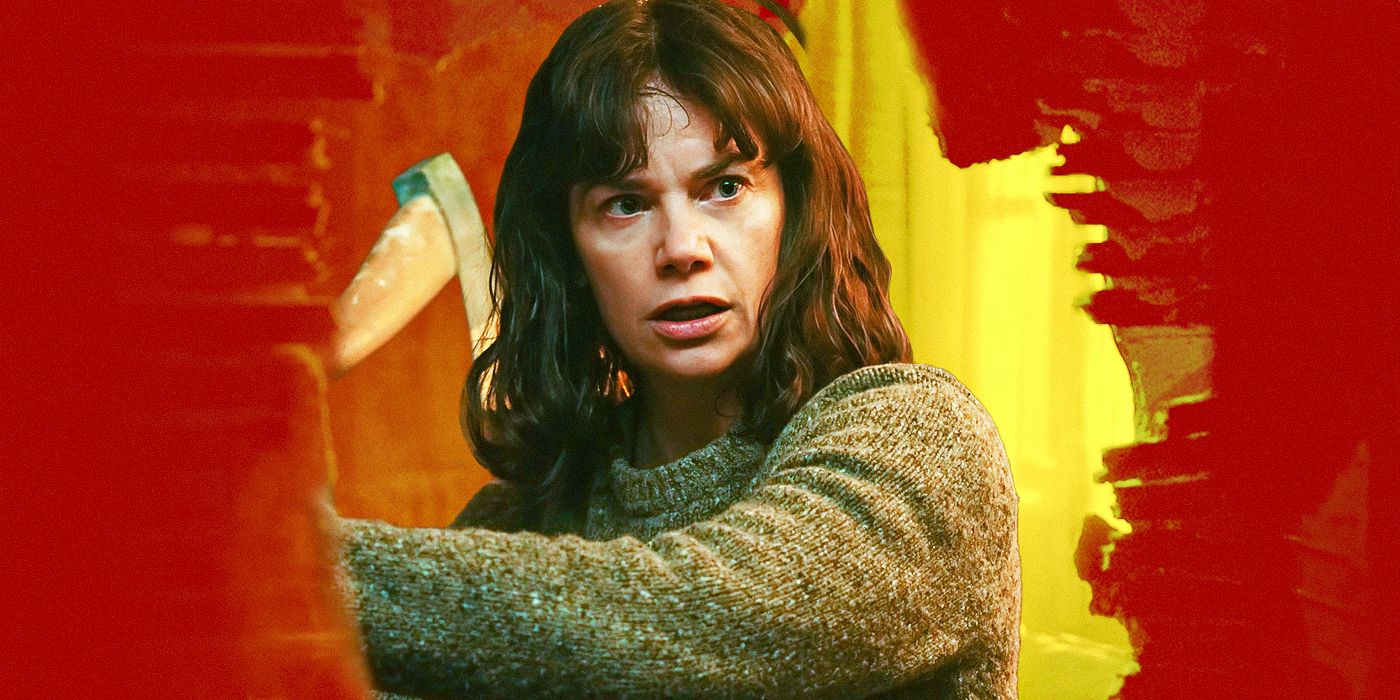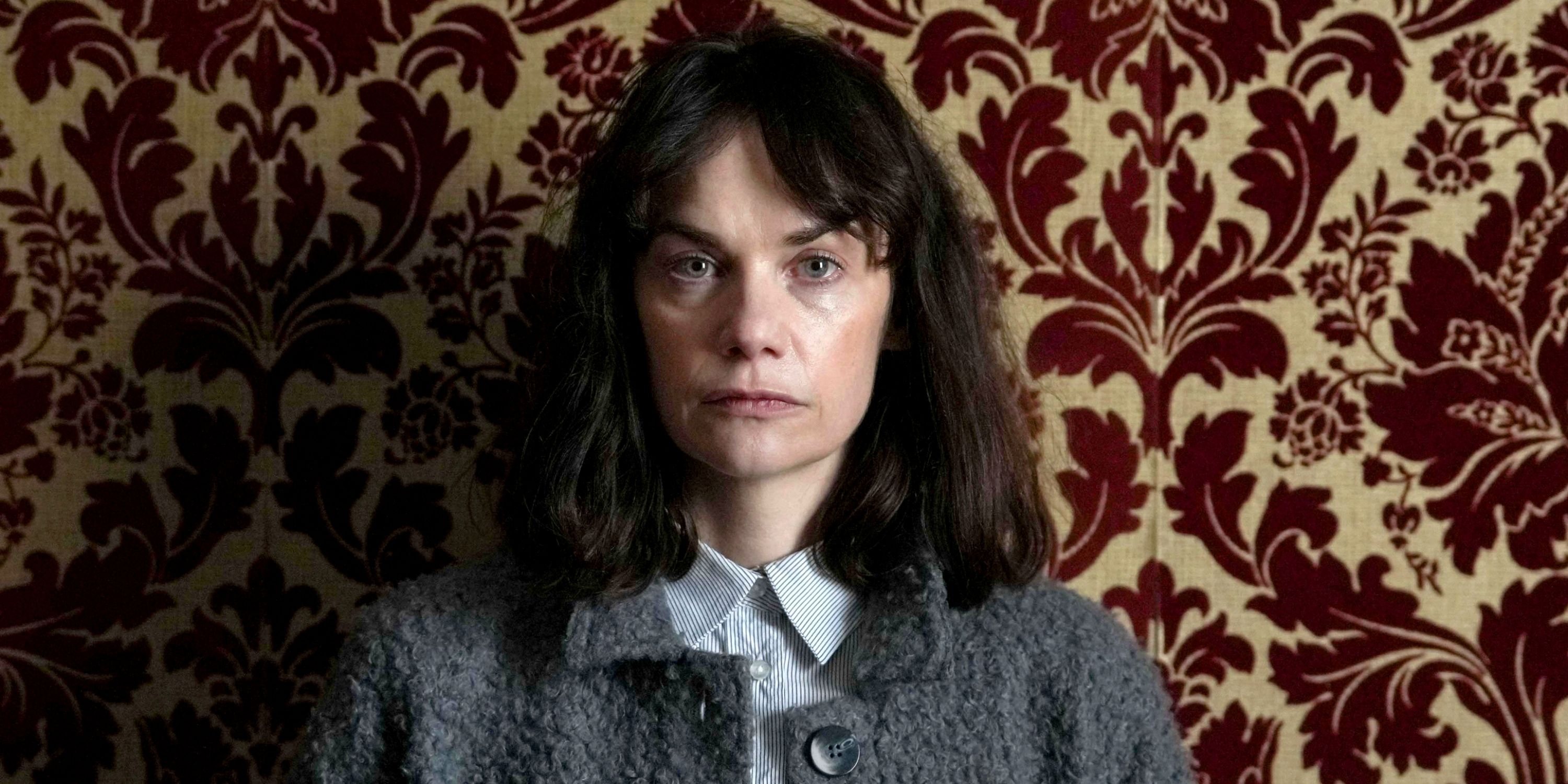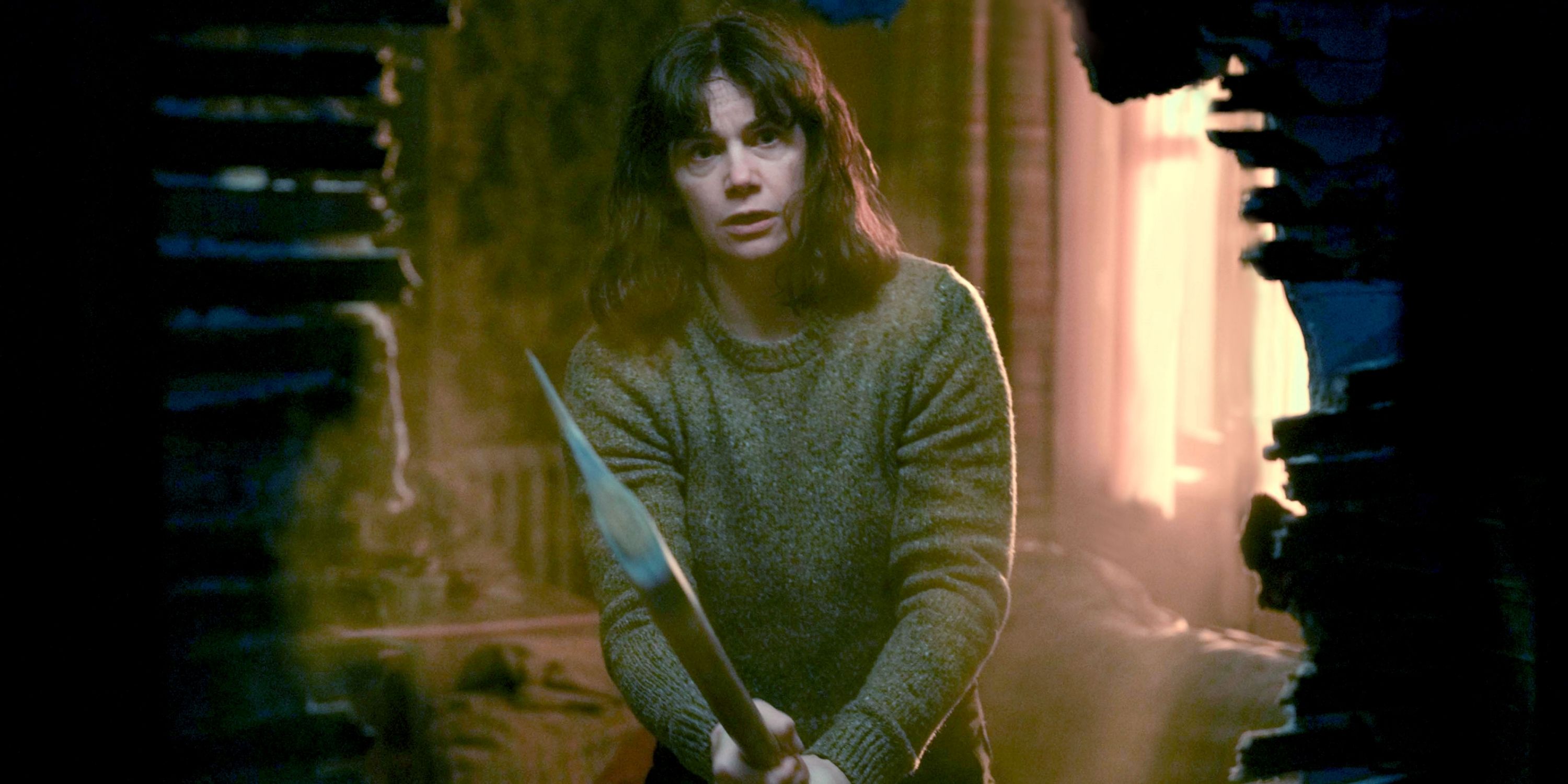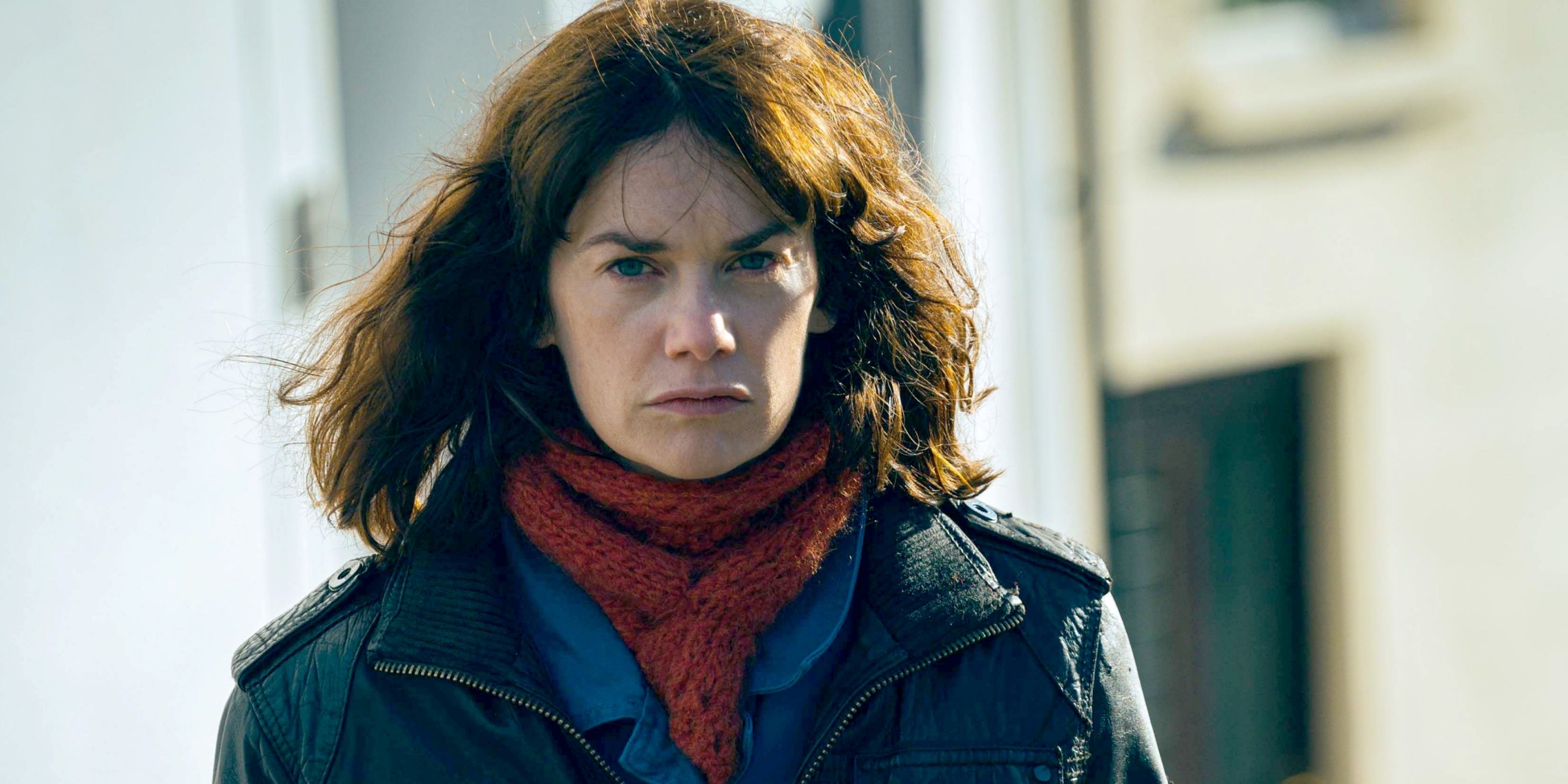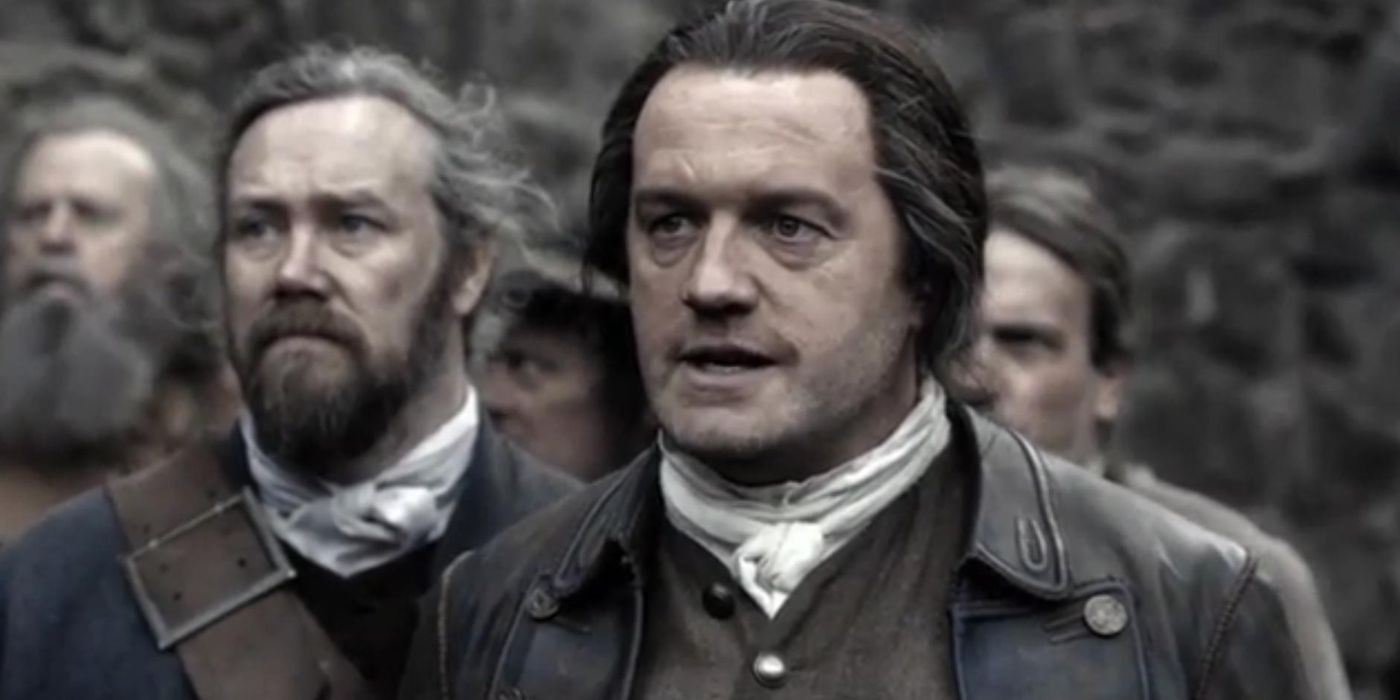The Big Picture
- Ruth Wilson loved the mystery and unpredictability of her character in ‘The Woman in the Wall.’
- Wilson did extensive research into the historical context of the Magdalene Laundries for her role.
- Wilson found inspiration for her character’s sleepwalking movements by watching videos of real people sleepwalking.
The Showtime six-episode drama series The Woman in the Wall follows Lorna Brady (Ruth Wilson), a woman from a small Irish town who discovers a corpse in her house that leads her to question whether she’s responsible. Having been incarcerated at one of the Magdalene Laundries for women at the age of 15, trauma over the grief of having her daughter cruelly taken from her has led to extreme bouts of reality-altering sleepwalking. At the same time, Detective Colman Akande (Daryl McCormack) catches a case for a seemingly unrelated crime that puts him directly in Lorna’s path, leading him on a pursuit for truth with unexpected results.
During this interview with Collider, Wilson, who’s also an executive producer on the series, talked about what made Lorna such a great character to play, how involved she got with developing the series into what we see now, her love of doing research for a project, digging into the details of the Magdalene Laundries, working on the accent, studying sleepwalking videos, and her hope that the audience will feel empathy for Lorna. She also talked about loving the extremes of the characters she’s played, why she tends to go quiet after finishing a role, and her experience making A Very Royal Scandal, about Prince Andrew’s interview with journalist Emily Maitlis.
The Woman in the Wall
Lorna Brady wakes one morning to find a corpse in her house with no idea who the dead woman is. She doubts herself, because she has long suffered from extreme bouts of sleepwalking.
- Release Date
- January 19, 2023
- Creator
- Joe Murtagh
- Cast
- Daryl McCormack , Simon Delaney , Mark Huberman , Frances Tomelty , Ruth Wilson
- Seasons
- 1
- Network
- Showtime , BBC
- Streaming Service(s)
- Paramount+
Ruth Wilson Loved Being the Unreliable Narrator of ‘The Woman in the Wall’
Collider: I was so drawn in by watching your performance in this, just with everything your character goes through. I can’t even imagine what it must have been like to explore her.
RUTH WILSON: Yeah, she’s a great character. As soon as I read the pilot, she was instantly surprising. I didn’t know where she was going next and she was quite an unreliable narrator. You don’t know what’s real and what’s not, or what’s in her mind, what’s sleeping, and what’s awake. I loved that. I loved the mystery of it. I loved that I didn’t know. I didn’t quite understand her, and that felt really exciting. By the end of episode one, you’re like, “Oh, my gosh, she did that. What?! Who? Why? How?” I knew that was a setup for her, throughout the season, and that she was gonna keep doing these surprising things. That was what excited me about it.
How much research did you do into the Magdalene Laundries when you were working on this? How far did you feel you needed or wanted to dive into something like that, when you’re doing a project like this? Were there specific details that were most vital for you to learn or to know about?
WILSON: I love doing research. It’s my favorite part of the process. I love doing deep dives and getting as much information as possible and understanding the context of the world. I never know how much that really affects your performance, but for me, it’s the interesting part and I’m learning something new. Also, I was involved in exec producing this and when I was attached to it, there was only one episode and that still needed finessing. So, the information that I was learning, we put into the show down the road. Finding out new information or things we could apply to the character of Lorna or someone else, actually proved really useful in those respects. It was really important for me to keep grounding this material in the real-life stories because there’s genre, there’s entertainment as part of it, there’s murder mystery, and there is this gothic horror, but essentially what was important to me was getting out that real story and making it feel as truthful as possible.
The research was vital. I didn’t meet a survivor, but I did speak to this woman called Katherine O’Donnell, who represents the survivors of these institutions, and she has put together a whole oral history and testimonies from these women, so there’s a lot of material out there that you can find. They also went out to the west of Ireland and went to a place where there’s a shrine now where 800 remains of babies and infants were discovered at the bottom of this mother and baby home. The land still hasn’t been excavated, and they want that to happen. So, why I chose this and why it’s important is that it’s still to be reconciled in Ireland, and it’s still to be acknowledged and there are still actions to take place for those survivors to feel like they have been heard and not compensated, but acknowledged that the experience happened to them.

‘The Woman in the Wall’: Cast, Trailer, Plot, Release Date, and Everything We Know So Far
The gripping thriller that exposes one of Ireland’s darkest histories.
How did you approach working on the accent? What helps you when you’re doing something like that, to feel like you’ve gotten it right?
WILSON: I had an accent coach who was there, telling me whenever I got it wrong, which was very useful. It’s really interesting with accents because it’s not just about picking an accent out of nowhere. For me, it’s a tonal thing. It’s about an energy and sound that feels right for the character. I didn’t want a typical Irish sing-songy, quite high voice. I wanted something a bit more deep and gravelly and at the back of the throat. We found this woman called Cora Staunton, who’s this amazing Gaelic football player, and she has a really interesting quality to her voice that I really liked, and I thought, “That sounds like Lorna to me.” There was also a crew member on set who had a very similar voice, so I asked her to record all my lines.
Ruth Wilson Wanted to Avoid Slow-Motion Zombie-Like Sleepwalking for ‘The Woman in the Wall’
We see your character in really what’s almost like a trance state when she falls asleep? How did you want to embody that physically? You can definitely tell when she’s not fully there because of how you embody it, but how did you figure that out?
WILSON: It’s really interesting, I didn’t really put much thought into it until the night before I had to do it. Prior to that, I thought it was like classic sleepwalking. It was written as slow-motion and zombie-like, but I thought, “Everyone’s done that. What can I do differently?” So, I started looking up sleepwalking videos from people who record themselves sleepwalking and post them. I’ve forgotten her name now, but there was one brilliant woman that would record herself and it was really funny. She walked like a grown baby. She was slightly out of control of her body, and she’d be stuffing things in her pants, and she’d be chucking stuff and talking to plants and farting, and doing everything that she would usually not do in waking life. I thought, “Ah, that’s the key.” It’s actually really funny, as well as quite scary. I came up with a walk at night that I was gonna do, that was slightly out of control. Seeing her face, she’s not in control of her expressions, or it’s all extended or over the top. So, I went with it the next day and no one told me no. I really love that juxtaposition of what she’s like in waking life, as a woman that’s a shadow of herself, and then at night, the shadow comes out.
There’s such an interesting dynamic with Daryl McCormack in this series. At the same time we’re learning Lorna’s story, we’re also watching this detective pursue answers for this murder. What was it like to work with him on this?
WILSON: They’re adversaries, initially. She’s a prime suspect, and she thinks she has killed this woman in her house. She’s guilty of something, and she’s trying to solve what happened to her child before she gets caught. She’s sort of on the run, and he’s chasing her. They’re adversaries at the start, but they discover they’re the yin and yang of each other. They represent what each other has been missing for their whole life and that creates a bond between them. Even though it’s not overly stated, that’s what the audience gets from the piece. They start to understand each other and work together for a greater justice, really.
It was just so compelling to watch your performance in this because you truly are acting from head to toe, with your facial expressions and your physicality.
WILSON: Thank you. I loved playing her. I am a physical person and this was, naturally, a very, very physical role. I wanted her to be strong, as well. I thought she was incredibly fragile in many ways, but she has a physical strength, and she looks after herself and there’s no way she’s gonna let anyone hurt her again. She has this incredible physical strength, and she’s bashing down walls and doing functional tasks in the house. I think it’s really interesting to always find the conflict within each character I play, whether that’s physical or emotional.
And wielding an axe around is no joke.
WILSON: It was quite fun to do. I learned to weld. I learned plastering. I learned all sorts of skills.
Ruth Wilson Hopes People Feel Empathy for Her ‘The Woman in the Wall’ Character
Because she is such a challenging character to understand, what do you hope people see in Lorna, throughout the series?
WILSON: Even though she’s difficult and she does odd things, you essentially understand why. You see where that trauma has come from and why she acts in the way she does, so I think you always have empathy with her. But as the show goes on, you also see her gaining in agency and strength and voice, and you see her fighting for her mission and her desire to get justice for herself, but also her child. You know what the heart of her drive is, which is just purely to find out what happened to her child that was taken away from her. You really fall in love with Lorna, I think, as the show goes on. You care a lot about her and what her end is, which is quite bittersweet. So, I hope that people feel empathetic towards her and feel enraged on her behalf.
You’ve played quite a variety of characters that I’ve just absolutely loved, from Jane Eyre to The Affair and His Dark Materials. My absolute favorite was Alice in Luther. But the characters are always so complex and complicated and often a bit dark. Were those all characters that you immediately were drawn to? Did you ever need any extra convincing for yourself to play any of them? Have you ever wanted to do more comedy?
WILSON: I often find the characters quite funny. That’s my sense of humor. They’re a bit weird and dry. Alice is a bit funny. Lorna is definitely a bit funny, in the way that she conducts her life. I do find them a bit funny. And I suppose what draws me to them is that they’re so different from other female roles out there. When I read this, I was like, “God, she’s sleepwalking and with an axe. That’s brilliant. This character is brilliantly mad.” I’m drawn to that because you don’t often get those sorts of roles. It’s quite rare for women to be able to play those sorts of things, so I jump at the opportunity when they come. I’m looking for something a little quieter now. But I love the extremes of those characters. I’m quite physical as an actor, so I’m sometimes drawn to those things that can be more physical on the screen.

TV Performer of the Week: Ruth Wilson, ‘The Affair’
Though she’s fantastic every week, there was something special about Sunday’s episode.
When you play characters like that, do you ever miss any of them or are you happy to leave them behind in a box and move on when you’ve finished with them?
WILSON: Yeah, sometimes I miss them because that wildness might not come along again. With Lorna, there was a freedom with her because she’s an outsider, and she was considered a bit mad and weird. And the way that we were shooting it with these genres, it meant that you could play with the form and the performance to push the boundaries of it. That was really freeing and fun to do. You do sometimes miss those opportunities, but you know another one will come along or something else will. But I don’t tend to hold onto characters much. Once they’re gone, they’re gone. It’s strange. I haven’t really worked out how I process that. I certainly know that for a few weeks after, I have to go quiet because I’m exhausted. And then, I slowly get my inspiration back, but I’m sure that’s shedding that thing. It also takes a lot of energy to put into creating those characters, so you’re just exhausted.
Do you know what you’re going to do next? Are you currently working on something now?
WILSON: I’ve finished the Royal Scandal series, which is a three-parter. I’m playing Emily Maitlis and Michael Sheen is playing Prince Andrew. That’s about how they got the interview and why Andrew decided to do it, then it’s the interview itself, and then it’s the consequences. I loved doing that. I was actually playing a real person for the first time, and it was a technical exercise in some ways, having to replicate her and replicate that interview because it’s so well-known. And I got to be blonde, have contact lenses in, and have bright blue nails, going back to my glamorous self. And then, this year, there are a few things, but I’m reluctant to say exactly what they are yet because we’re working it out. Maybe I’ll come back to New York to do something, and there are a few things that might happen in the middle of the year. I’ve got a few months off now, which is really lovely.
Ruth Wilson Says Michael Sheen Will Be Brilliant as Prince Andrew in ‘A Very Royal Scandal’
When you do something like A Very Royal Scandal, it like, as an actor, to be sitting across from Michael Sheen and watching him as Prince Andrew?
WILSON: It’s amazing. It made me understand the skill of imitation. When he does it, he’s drawing more attention to the absurdity of it. It’s just through the manner of imitation, he wasn’t hamming it up. It was just the fact that, by someone else doing it, you are already drawing attention to the way someone speaks or their mannerisms. I just thought he was extraordinary and brilliant. We only did 20 minutes of that interview, but it felt so dramatic. It holds as a piece of drama on its own. We really enjoyed doing it, the two of us. It was really fun, playing that. We would imitate, but also get underneath why they were reacting in the way they were. With someone like Emily, she wasn’t really giving much away. She’s very professional in that moment. But we see her in other interviews being much more expressive and emotional, so you realize what an extraordinary interview she was, in that moment, by holding it all together. It was great to work opposite Michael. He’s so good. He really is.
What is the most nervous you’ve been the night prior to starting a project? Are you one of those actors who seeks out being at least a little nervous about everything that you do?
WILSON: Definitely. If something scares me, that’s a good reason to do it because it means I don’t know how to do it, and it means that I’ll work harder to work out how to do it. It will be a challenge, and I’ll learn something from it. The most scared I’ve been was when I did a monologue on stage that was an hour and 15 minutes of just a phone call. There was no one on the other end of the phone, and it wasn’t written, so it was just me responding to nothing. I was terrified, going on the stage and doing that every night, but then I quickly learned they don’t know what they have got no idea what I’m supposed to do. If I forget my lines, they’ve got absolutely no idea. So, I found a freedom in it. But yeah, I do get drawn to things where I’m scared. It’s the only way to do the work. I don’t want to be bored in my work. I wanna keep challenging myself.
The Woman in the Wall airs on Showtime and is available to stream on Paramount+ with Showtime.
Watch on Paramount+

